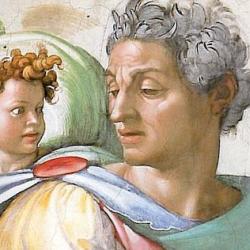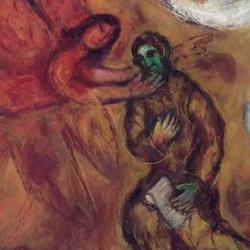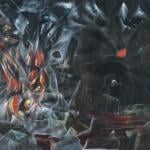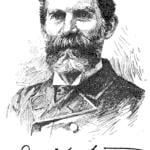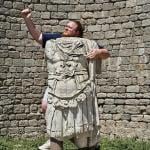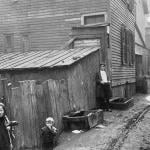INTRODUCTION
The first section of Isaiah’s prophecy (chapters 1-12) ended with the promise of an exodus and a “song of Moses” (11:11-12:6). The original song of Moses spoke of the nations trembling before Yahweh (Exodus 15:14-16), and Isaiah fittingly continues with prophetic oracles against the Gentiles (chapters 13-24). The new section of the book is marked by a reminder that the oracle comes from “Isaiah” (13:1; cf. 1:1; 2:1).
THE TEXT
“The burden against Babylon which Isaiah the son of Amoz saw. Lift up a banner on the high mountain, raise your voice to them; wave your hand, that they may enter the gates of the nobles . . . .” (Isaiah 13:1-22).
ORACLES
This section of Isaiah includes ten oracles against Gentile peoples (13:1; 14:28; 15:1; 17:1; 19:1; 21:1, 11, 13; 22:1; 23:1). They seem to be organized in two groups of five. The first five are directed against Babylon, Philistia, Moab, Syria, and Egypt. The second group begins with Babylon but then moves through other nations: Babylon (21:9), Edom (21:11), Arabia (21:13), “valley of vision” (Jerusalem?; 22:1), and Tyre (23:1). Each list includes great empires (Babylon, Egypt), traditional regional enemies of Israel (Philistia, Syria), and nations that were “cousins” to Israel (Moab, Edom).
BABEL/BABYLON
The first oracle is against “Babylon.” Hebrew makes no distinction between “Babel” and “Babylon.” The name in Isaiah 13:1 is the same as that in Genesis (10:10; 11:9). Though Babylon disappears from Scripture between Genesis and the reign of Hezekiah (2 Kings 20; Isaiah 39), it is the great rival to God’s kingdom. The original Babel attempted to build a tower/temple and city in defiance of God, and near the end of Scripture Babylon appears again as the false Bride (Revelation 17-18). History is a story of two cities, Babel, the city of rebellion and ultimate confusion, and Jerusalem, the city of God.
DAY OF YAHWEH
Isaiah 1-12 is obsessed with the Assyrian threat. Babylon doesn’t appear until 13:1, and then it appears only to be destroyed. A day of Yahweh is coming (vv. 6, 9), when Yahweh will send His own warriors against the city (v. 3) and gather the nations to attack it (v 5). The people of Babylon will be terrified (v. 8) as the Lord expels the sinners from the city (v. 9). Babylon’s rulers have been like stars in the heavens, like the sun and moon, but the Lord is going to make the world of Babylon collapse (vv. 10-11). The people of the land are going to be driven away, and become as scarce as the precious gold of Ophir (vv. 11-12). Those who remain will be hunted down, children will be dashed to pieces and women will be raped (vv. 15-16). Babylon will be utterly destroyed, subject to Yahweh’s ban. Israel was left a remnant, not totally destroyed like Sodom and Gomorrah (1:9), but Babylon will be obliterated.
MEDES
Yahweh will carry out this judgment against Babylon through the Medes (v. 17). They won’t come to Babylon for the gold or other plunder, but only to indulge a taste for savagery against young men and children (v. 18). They will leave Babylon a wasteland, inhabited only by nomads and by the beasts of the wilderness (vv. 20-22).


